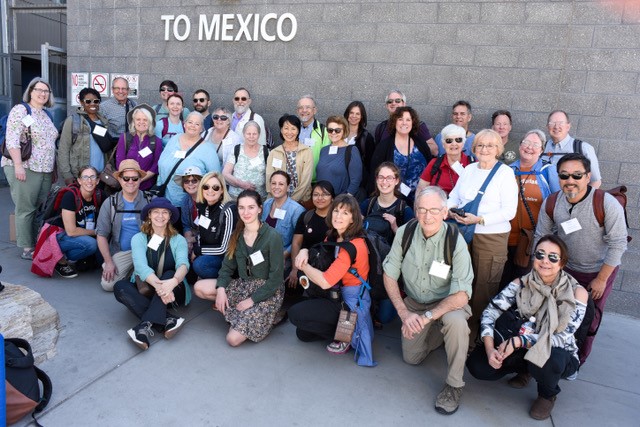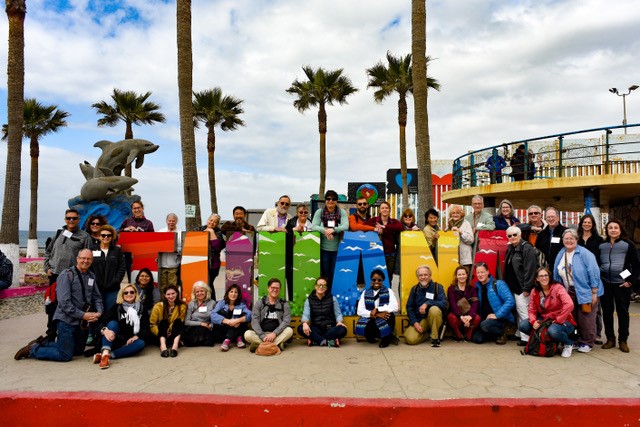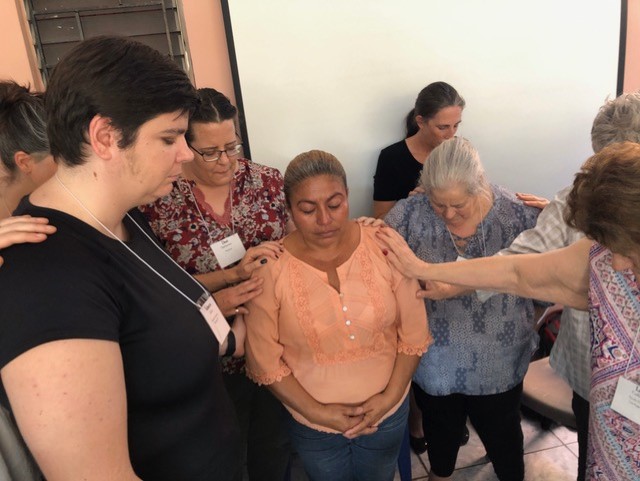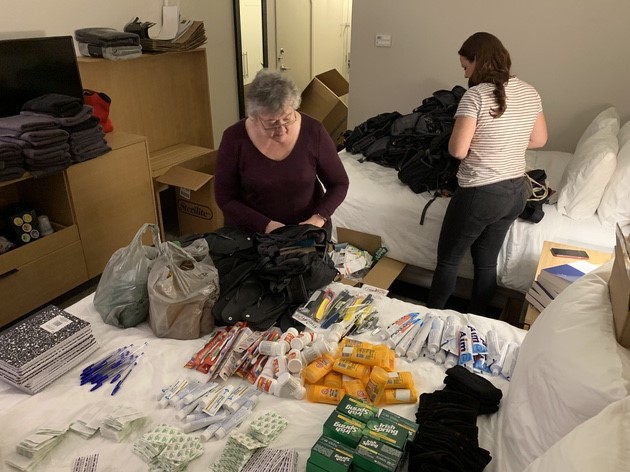A Letter from Tracey King-Ortega, serving as regional liaison for Central America, based in Nicaragua, currently in the U.S.
April 2020
Write to Tracey King-Ortega
Individuals: Give online to E200518 for Tracey King-Ortega’s sending and support
Congregations: Give to D507539 for Tracey King-Ortega’s sending and support
Churches are asked to send donations through your congregation’s normal receiving site (this is usually your presbytery)
Dearest Sisters and Brothers in Christ,
Over the past weeks, as we as a family have been adjusting to the news of school being canceled, statewide stay-at-home orders, figuring out the whole home-schooling thing and finding myself overly obsessed with news and my social media feed, I have been experiencing a sort of deja vu. The uncertainty, the fear, the non-stop consumption of news media to make sense of what was happening. It has been all eerily familiar.
A little less than two years ago, Nicaragua was thrown into a time of political violence and unrest. As protesters in the streets were met with violent repression, the whole country erupted and suddenly we found ourselves safer at home. We stocked up on the basics of rice and beans to be able to shelter in place. In-person classes were canceled for the kids as assignments were put online, not knowing when it would be safe to send the kids back to school. About two months into the conflict, with one big suitcase for my three children and me, we opted to pull out of Nicaragua and relocate to my mom’s home in Southern California for a time.
Nearly two years later, we remain based in my mother’s house, having taken this time to go through the process of obtaining U.S. residency for my husband. We miss Nicaragua terribly, but rest in knowing that our children are thriving here. And now, based in the U.S., we find ourselves reliving, in a way, the uncertainty and fear we experienced in Nicaragua beginning in April of 2018, though this time, it the whole world is impacted, not just our little corner. As the PC(USA) has been working to bring mission co-workers deployed around the world back to the U.S. and assure that others who have decided to stay in their countries of service are safe and sheltering in place, I am especially grateful that we had not yet moved back to Nicaragua. For if we had, we could just now be facing again, the difficult decisions of uprooting our lives again and possible family separation. Instead, we are holed-up together with great privilege, grappling, like many, with the changing world around us.
As this newsletter’s deadline was fast approaching (and has since come and gone), I had great plans to share stories from my recent travels. Mid-February to early-March was spent accompanying two back-to-back Presbyterian Peacemaking Travel Study Seminars focused on issues of Migration. The first trip was to El Salvador with more than 20 participants for the first leg of their travels to the Northern Triangle of Central America (El Salvador, Guatemala and Honduras). The second trip, co-hosted by the Presbytery of the Pacific, with nearly 40 participants, was to Tijuana on the U.S./Mexico Border. Just as the second trip was wrapping up and we were all beginning to process those powerful experiences, news of the growing spread of the coronavirus was beginning to taking center stage. The stories of migrants no longer felt relevant. Then, after some more thought, it occurred to me that the story of responding to the flight and plight of refugees and migrants is perhaps more pertinent than ever.
Though this global pandemic does touch all our lives in some way or another, its impact is not equal. Those on the move, those who have been forcibly displaced from their homes because of violence, refugees and asylum seekers, remain in dire situations. While Covid-19 news understandably consumes us, their suffering increases. With the global pandemic as justification, there is no longer any process for hearing refugees’ claims for asylum and all are simply pushed back and turned away. Yet with borders essentially closed, the United States continues deportations, sending planeloads back to the Northern Triangle several times a week. As the country currently with the highest number of cases of Covid-19, we are potentially exporting the virus to vulnerable developing countries with fewer resources to deal with such a crisis. I am also concerned for migrants being held in detention centers around our nation. It looks like a ticking time bomb to me.As a mission co-worker, I get to hear and see stories first-hand that shine light on push factors for migration and the complicated and inhumane nature of our border policies. These stories and our Christian calling push me to keep this vulnerable population in view. Our prayers are important, as is our advocacy and accompaniment.
I have been humbled by the commitment and feet on the ground contributions our partner denomination in El Salvador is making in favor of migrants. The Reformed Calvinist Church of El Salvador (IRCES) received a grant from Presbyterian Disaster Assistance (PDA) to help them transform part of the church offices into a transitional shelter for returned and deported migrants. Since July of last year, more than 80 migrants and internally displaced people have found temporary refuge there.
Our February delegation had the opportunity to speak with Juana who recently made the difficult decision to give up her asylum claim and return as a deportee to El Salvador because she had no way of coming up with the $25,000 bond set for her by the U.S. immigration court. Upon return she was in a couple of different shelters where she felt discriminated against and then landed for a time at the shelter our partner church IRCES is running with financial support from PDA. It was there that she received true hospitality and love. That kindness got her through and has enabled her to continue forward on her own, still in similarly precarious circumstances that pushed her out in the first place, but now with listening ears and a supportive community.
After some time with Juana, we heard more about all the ways IRCES is responding. When asked why they do what they do, Carmen Diaz, lay leader of IRCES’ reply was simple. “We do this because we read the Bible. All throughout the Bible we are told to welcome the stranger and love our neighbor.” They are living the gospel message in tangible ways, and it is inspiring.
Especially in this time of mandated social distancing, I am thankful for the broader, global perspective my faith and my work provide me. On a daily basis I am not just following the rising number of Covid-19 cases here in the U.S., but I am in constant contact with our partners in Central America seeing how they are responding and processing this changing world and continuing to follow God’s call to serve the least of these. Thank you for your prayers and financial support that sustain me in this work. May we stay healthy, connected and faithful in these challenging days.
Blessings and peace,
Tracey
![]() You may freely reuse and distribute this article in its entirety for non-commercial purposes in any medium. Please include author attribution, photography credits, and a link to the original article. This work is licensed under a Creative Commons Attribution-NonCommercial-NoDeratives 4.0 International License.
You may freely reuse and distribute this article in its entirety for non-commercial purposes in any medium. Please include author attribution, photography credits, and a link to the original article. This work is licensed under a Creative Commons Attribution-NonCommercial-NoDeratives 4.0 International License.



